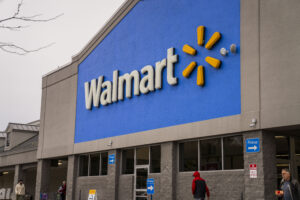
Confidence among British households deteriorated again in June, setting a record low for the second consecutive month and adding to concerns of a pullback in consumer spending amid sluggish economic growth.
The consumer-confidence barometer compiled by research firm GfK declined to minus 41 in June from minus 40 in May, the lowest level since the survey began in 1974, missing economists’ expectations of a slight increase to minus 38.
The index has declined uninterruptedly for seven straight months due to rising inflation, driving consumer confidence to levels that in the past have been consistent with economic recessions.
“The consumer mood is currently darker than in the early stages of the Covid-19 pandemic, the result of the 2016 Brexit referendum, and even the shock of the 2008 global financial crisis, and now there’s talk of a looming recession,” GfK client strategy director Joe Staton said.
Four of the five measures that form the confidence index decreased in June compared with the previous month, with the sharpest fall registered in consumers’ short-term outlook about their personal finances.
“With prices rising faster than wages, and the prospect of strikes and spiralling inflation causing a summer of discontent, many will be surprised that the index has not dropped further,” Staton said.
U.K. annual inflation reached a four-decade high of 9.1% in May amid rising food and energy prices, the highest rate among the Group of Seven rich economies. Gross domestic product contracted in both March and April, adding to the probability that the U.K. falls into a recession this year.
Household’s increasing pessimism about the state of the economy and their finances could weigh on activity if they start to pull back spending. “Britain faces a stark new economic reality and history shows that consumers will not hesitate to retrench and tighten their purse strings when the going gets tough,” Staton said.
However, British household consumption has shown resilience in the past months despite the cost of living crisis as a solid labor market and hefty savings from the pandemic continued to support incomes.
“While consumer spending may fall in the coming quarters, a very big and prolonged crash in spending is not necessarily on the cards,” Capital Economics assistant economist Nicholas Farr said in a note ahead of the data release.
The GfK survey, which polled around 2,000 individuals, was carried out between June 1 and 14.










